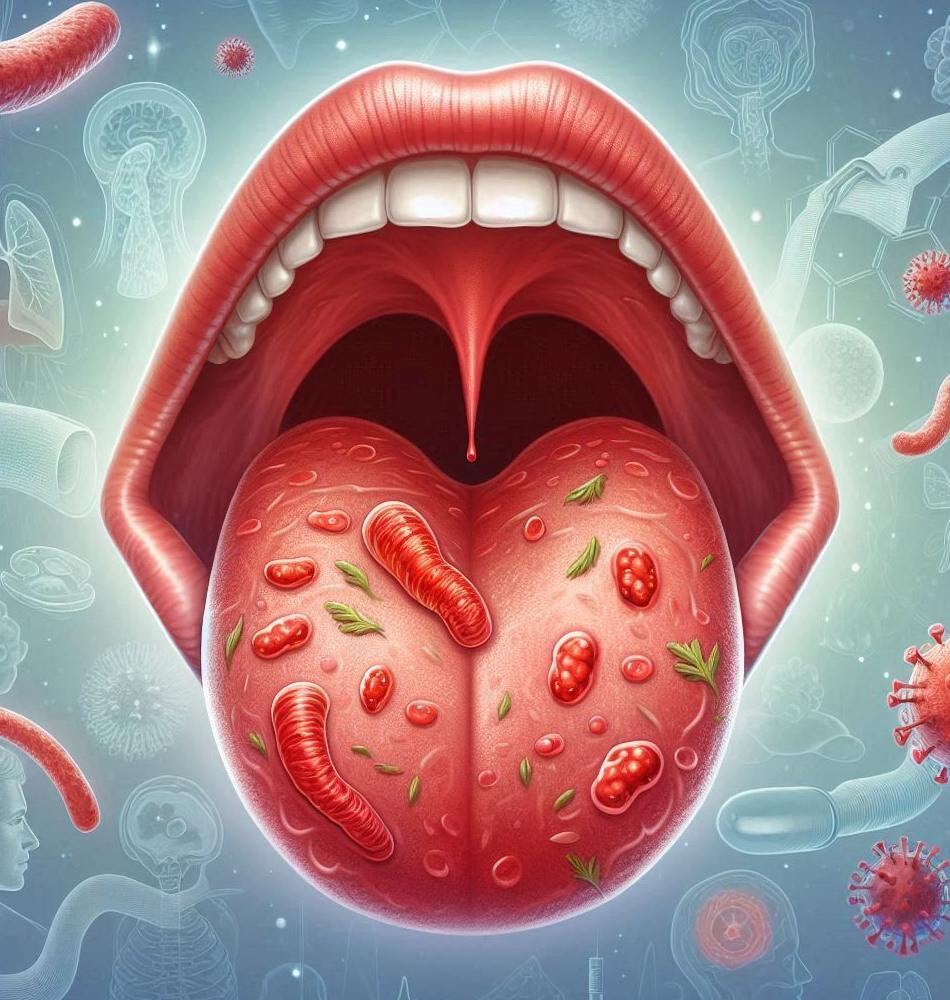Strep throat is a common yet painful condition that can disrupt daily life and leave you feeling miserable. Caused by the bacteria Streptococcus pyogenes, strep throat can lead to a sore throat, fever, and other discomforts. One of the most frequently asked questions is, “How long does it take to get rid of strep throat?” In this article, we’ll dive deep into the recovery timeline, available treatments, and tips for managing symptoms. Let's get started!
Understanding Strep Throat 🧑⚕️
Before we discuss how long it takes to recover from strep throat, it’s essential to understand what strep throat actually is. Strep throat is an infection of the throat and tonsils primarily caused by Streptococcus bacteria. This infection is highly contagious and can be easily spread through respiratory droplets, which is why it’s crucial to be aware of its symptoms and treatment options.
Symptoms of Strep Throat 🚨
The initial symptoms of strep throat can vary from person to person. Common signs include:
- Severe sore throat
- Red and swollen tonsils, sometimes with white patches
- Fever of 101 degrees Fahrenheit or higher
- Pain while swallowing
- Swollen lymph nodes in the neck
- Headache
- Rash in some cases
If you notice these symptoms, it is important to consult a healthcare professional for proper diagnosis and treatment.
Treatment Options for Strep Throat 🩺
The duration of recovery can depend significantly on the treatment provided. Most healthcare professionals recommend the following steps:
Antibiotic Treatment 💊
Getting prescribed antibiotics is a common and effective treatment for strep throat. Antibiotics such as penicillin or amoxicillin are generally recommended. Once treatment begins:
- You can typically expect to feel better within 24 to 48 hours.
- After 24 hours of antibiotic use, you are usually no longer contagious.
- Completing your prescribed antibiotic course is crucial in ensuring that the bacteria are fully eradicated.
Home Remedies 🏡
In addition to antibiotic treatment, you may want to pursue some home remedies to alleviate symptoms and speed up recovery:
- Stay hydrated by drinking plenty of fluids.
- Gargle salt water to soothe your throat.
- Use throat lozenges or sprays for pain relief.
- Rest your voice and minimize talking if possible.
- Consider over-the-counter pain relievers like ibuprofen or acetaminophen.
Factors Influencing Recovery Time ⏳
Several factors can influence how long it takes to recover from strep throat:
- Age: Younger children may take longer to recover than adults.
- General health: Pre-existing health conditions can prolong recovery.
- Type of bacteria: Some strains may be more resilient than others.
While most people recover from strep throat within a week, these factors can play a role in individual experiences.
Complications to Watch For 🚑
Though strep throat can often be treated successfully, ignoring symptoms or delaying treatment might lead to complications, such as:
- Scarlet fever
- Abscess formation around the tonsils
- Post-streptococcal glomerulonephritis, which can affect kidney function
- Rheumatic fever, leading to heart issues
Seeking prompt medical attention can help prevent these complications and allow for a faster recovery.
Frequently Asked Questions About Strep Throat ❓
- How is strep throat diagnosed?
- Can I prevent strep throat?
- Is strep throat more common in certain seasons?
- Can strep throat happen more than once?
- Do over-the-counter medications help?
Your healthcare provider may conduct a rapid strep test or a throat culture to diagnose the infection.
Yes, practice good hygiene by washing your hands regularly and avoiding close contact with infected individuals.
Strep throat often peaks in winter and early spring when respiratory infections are more prevalent.
Yes, it is possible to get strep throat multiple times, especially if you are regularly exposed to bacteria.
Yes, pain relievers can help manage symptoms, but they do not treat the bacterial infection itself.
Follow-Up and Recovery Progress 📅
After starting antibiotics, most people experience a noticeable improvement in symptoms within a couple of days. However, it is vital to attend follow-up appointments with your healthcare provider if symptoms persist or worsen. Be sure to monitor for any complications, and do not hesitate to seek medical attention if you feel uncertain.
Post-recovery, consider taking steps to strengthen your immune system and minimize future illnesses. These could include a healthy diet, regular exercise, and maintaining good hygiene practices.
Conclusion 🏁
Recovering from strep throat can typically take anywhere from a few days to about a week with the right treatment. Early diagnosis and appropriate antibiotics are essential for a swift recovery. If you find yourself battling strep throat, don’t ignore the signs and prioritize your health. By taking the necessary steps to address the infection, you can nip it in the bud and get back to living your life fully. Remember to stay informed, seek medical help when needed, and support your body during the healing process.

